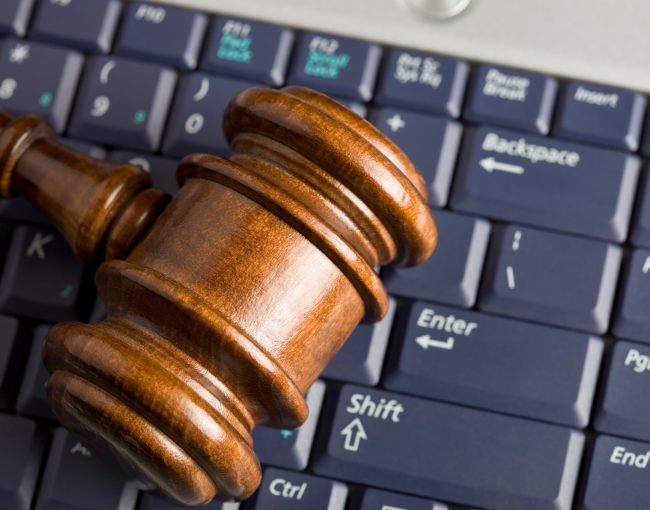Opening the Conveniences of Remote Depositions: A Comprehensive Overview for Modern Legal Practices
In the ever-evolving landscape of contemporary lawful methods, the change towards remote depositions has actually ended up being increasingly common. As the lawful sector adapts to the digital age, understanding how remote depositions can transform the method depositions are performed is important for staying in advance in a competitive market.
Benefits of Remote Depositions

Furthermore, remote depositions provide an affordable service for legal proceedings. Without the need for traveling, costs such as transportation, accommodation, and venue rentals are significantly minimized. This not only advantages law office and their clients economically yet additionally adds to a much more lasting approach by lowering carbon exhausts connected with traveling.
Along with the functional benefits, remote depositions additionally promote inclusivity. By leveraging innovation for digital meetings, individuals who might have trouble taking a trip to a physical location, such as those with handicaps or individuals in remote places, can take part extra easily in the legal process (REMOTE DEPOSITIONS). Overall, the advantages of remote depositions make them a beneficial device for modern-day legal methods looking for efficiency, cost savings, and inclusivity
Effectiveness and Time Financial Savings

One major time-saving facet of remote depositions is the elimination of travel time. Instead of travelling to a physical place, lawyers and witnesses can take part in the deposition from the convenience of their very own offices or homes. REMOTE DEPOSITIONS. This not only decreases the time invested on logistics but additionally enables even more versatile scheduling, as individuals can avoid the constraints of traveling plans
In addition, remote depositions typically simplify the process with attributes like real-time transcription and exhibit sharing, enabling all entailed celebrations to access details quickly. This immediate accessibility to important information promotes much faster decision-making and improves the overall performance of the lawful procedures.
Cost-Effectiveness and Ease Of Access
Utilizing remote deposition technology can bring about considerable expense savings and enhanced access in lawful procedures. By conducting depositions remotely, lawful techniques can eliminate various costs related to traditional in-person depositions, such as traveling costs, accommodation, and venue rental fees. This cost-effectiveness is particularly beneficial for law practice aiming to simplify their operations and decrease overhead expenses.
In addition, remote depositions improve access by enabling individuals to join from different places without the need for physical presence in a certain setting. This accessibility is particularly valuable for parties or witnesses who may have difficulty taking a trip because of wellness factors, geographical constraints, or various other dedications. In addition, remote depositions enable lawful experts to get in touch with experts or witnesses from worldwide, facilitating a much more varied and comprehensive method to gathering evidence and testimony.
Versatility in Legal Practices
The shift in the direction of remote depositions not only brings regarding cost-effectiveness and accessibility benefits yet also introduces a new level of flexibility in legal techniques. This boosted versatility allows attorneys to carry out depositions from basically anywhere, removing the requirement to take a trip to physical locations. By linked here leveraging remote deposition technology, lawyers can schedule and carry out depositions much more efficiently, fitting the busy schedules of all events included. Additionally, the adaptability of remote depositions makes it possible for lawful groups to collaborate flawlessly across various areas, promoting a much more structured and interconnected workflow. With the capacity to sign up with depositions remotely, attorneys can take care of numerous cases a lot more properly, lowering the time and resources traditionally invested in travel. Furthermore, the adaptability given by remote depositions promotes work-life balance read this post here for legal specialists, permitting them to join depositions while addressing individual or other professional obligations. Embracing this new level of flexibility in lawful practices not only improves effectiveness however additionally adds to a much more nimble and adaptable legal market.
Methods for Effective Remote Depositions
For effective remote depositions, precise prep work and clear communication are paramount. Furthermore, scheduling a pre-deposition conference to resolve any technical concerns and establish standards for the deposition can aid streamline the procedure.

After the deposition, promptly assessing the records and addressing any kind of inconsistencies or issues that emerged during the process is key to ensuring a precise record. By implementing these this link techniques, lawful methods can perform efficient remote depositions while promoting specialist standards.
Verdict
In final thought, remote depositions offer numerous benefits for contemporary legal techniques. Welcoming remote deposition technology can substantially benefit lawful practices in the digital age.